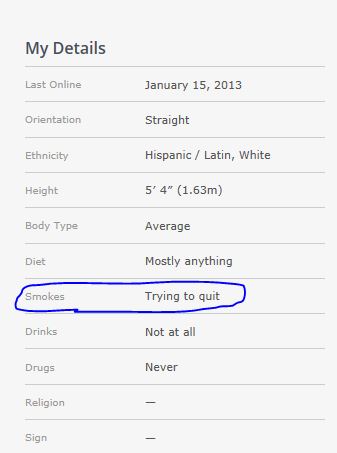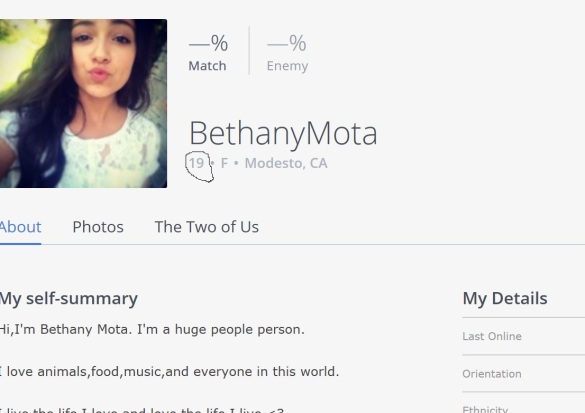It’s a common thing … “name brands” are supposed to be the “real” or “good” brands, and all of the other ones are supposed to be the “fake” or “bad” brands that you should be afraid of. Sounds just like the concocted mentality of the force behind the “name brands” trying to say, to be blunt, “Buy our stuff and give us the money, not the little brands!” When you really consider, it’s simple: lots of the name brands use the same or nearly the same ingredients as accompanying, rivaling, or similar lesser-known brands. What’s the real difference then? You might have guessed it … it’s mostly the name. The name and familiarity are two examples of some of the most known differences between more familiar brands and less familiar brands. The name brands don’t have any shamans, sorcerers/sorceresses, or any other influentially-magical people bless their food, products, or whatnot with indistinguishable flavors that are secretive and indeterminate. Another thing you’ll commonly see between the name brands and the small brands: price. Because people are at the mercy of believing that name brands are somehow better, it’s seemingly plausible to feel you must spend so much more money to get their products. If you’ve ever settled for a less expensive, less known product you might have found that the reason it may taste worse is because it’s made differently … not just because it’s less expensive. The driving mentality behind this line of thinking is also taken by the motto, “You get what you pay for.” In other words, it’s a misguided belief that you only get better with more money, or that what’s more expensive is more rewarding. Subjectivity, mass-consumerism, and so many other flaws I won’t point out in this flawed way of reasoning. It’s simply untrue that if you pay more, you always get better. It’s just that when people become attached to products, they assume that these products are good because they cost more. Or they assume that, because it costs more, more money goes in to making it a better product. If only more people knew that some tier 1 companies use the exact same manufacturing processes as the “nobody brands”, maybe then they’d be less brainwashed by these ideologies of how shopping is “supposed” to work. If you like a brand, good. If it’s a good price as well, even more good. What’s not good and not right is to assume that the brands you never try, or the brands that are less expensive are worse based solely on the price tag or lesser known name. This is like saying Katy Perry is the best singer in the world and anyone less known than her is “bad” because they don’t have her fame. Same exact concept with shopping, so we can assume that mass-consumerism in shopping works similarly to unreasonable worshipping of famous idols … In short, what’s known is “good”, and what’s less known is “bad” … that’s the whole mindset.
We need new alternatives and they’ll serve us well, won’t they?
Websites like Google Plus, Twitter, YouTube, Reddit, Tumblr, and many others are the “big” sites that “everybody” uses. Perhaps we need more alternatives to the mainstream. Let’s take a look at how alternatives can make everything better:
With more options people will have the freedom to make more choices. As it stands, people are (nearly) forced to use YouTube if they ever want their videos online to get much attention. If you want microblogging you are stuck pretty much with Twitter and Tumblr. While some alternatives exist, they are not stacking up to these greedy monopolies (talking about Google here, yes), despite the simplicity in designing and programming such a site, and the wide-array of innovative new features that could be added to go beyond, for example, YouTube (a new form of video responses/video replies comes as one example to mind, as well as a renovated inbox/messaging system to share videos/text with others). We need someone to break the shackles and dare to stand against the monopolies and try and give better features for users, and create better communities and experiences.
Will “Jane the Virgin” bring on some more slut-shaming?
There’s a new show coming soon to The CW called “Jane the Virgin”, and it’s about – you guessed it – a girl pressured into not having sexual relations (and possibly also not doing anything sexual, like masturbating, but I can’t be certain on that) and gets pregnant by accidental insemination. Anyways, I am pretty sure that the whole premise of this show is going to work out like this: young girl in Miami that has sexual encounters but gets shamed and feels at guilt so she backs out; has frequent inappropriate thoughts about sex and her own sexual sense of self; has shameful and wrongful discussions with her mother about sex and “becoming evil by losing her virginity”; and has plenty of content that is perfectly concocted up to possibly make more young girls feel bad about their sexual feelings, leading to possible repression of masturbation and/or sexual activities, self-denial, and even self-confidence by a long-shot. Will this show do us more harm than good? I think so, but I really can’t know because I don’t possess the script nor know the intricacies/elements that will unfold and reveal in the show. My opinion? Watch it and see what it’s about, but make the word known if this show does turn out to be another way of making females feel bad, unknowledgeable, and lacking of a sexual sense of self and personal sexual needs.
The world of unpredictable choices: Is it a good way to live?
Many people have different views of the world: some purely cynical; some look only at positives; some only negatives; and some a mix of both. Working from 9:00 to 5:00 is a very predictable world, but with prediction comes expectations being met and limitations being met as well. A 9:00 to 5:00 job will always pay you a fixed-rate if you work from 9:00 to 5:00; that’s just how it works in such an employment system. There are people who prefer to work 9:00 to 5:00 for their whole lives because it’s very predictable, and they have confined themselves to these limitations based on plenty of factors: salary; boss’s word; schedules; confinement; social pressure; mental limitations. Some people like the idea of getting a fixed-salary all the time and never worrying much about the amount … but others like more options, varying possibilities, and more freedom. Thinking inside the box is what limits people, but the system is predictable and assured for the time being. The problem comes when that assurance goes away and so does all of your financial possibilities. The world, meaning human civilization, has never been perfectly good and moral, and has never been perfectly bad and amoral, based on unlimited potential standards varying individuals can set forth, as well as opinions of everyone. Human society is never 100% good, and general day-to-day observances of the majority of humans is not predictable; people do not generally, all around, try and predict everything, but they confine themselves to limitations for security. This limitation can be slowly broken out of with the new world ideal: business. Not business as in coffee shop, or corporation, or specialized servicing; business as in freedom.
Is public school and “formal education” becoming obsolete?
With the ability to connect to databases over the internet in a tap, read digital text books, take free (or paid) M.O.O.C.s, A.K.A. “massive open online courses”, and varieties of information being more and more accessible to anyone, anywhere, at virtually any time, is it crazy to think the “traditional” way of learning is in need of a renovation? It may have been once necessary to take your kids to school … before they could access information, take tests, study, learn, exchange information, watch videos, communicate and visualize, and get hands on learning … all from their tablet in their bedroom. And we are certainly not even tapping into the system of schools, boards, approaches to teaching/learning, administrations, biases, and curriculums set forth by these very institutions. There is also the idea of whether or not schools are encapsulating kids’ ideas, thoughts, feelings, and understandings within the idea of a “learning system” they work around, thus, closing their minds a bit. Learning freely from a system means you can be free to have the most open mind as you wish, and that no curriculum or board will try and teach you based on whatever standards they have in place – some being extremely outdated.
There’s also limitations, no doubt. When you go to school you probably have a range of subjects, but not whichever ones you may want. Sadly, you can’t learn a subject that’s not part of their system and use it solely to your approach in learning there. In other words, if the school doesn’t teach music, learning music at the school is not feasible – and trying to apply your music learning there is not credential. This is a severe limitation to your ability to succeed doing what YOU want, which is the opposite of succeeding doing what is predetermined for you by the learning institution.
Let’s not forget that little fact that everybody learns somewhat different; nobody can learn everything one specific way. Schools, for the most part, and teachers specifically do not have the desire, capability, or time/resources to teach things in different ways, even slightly. This is where the problem arises … kids fall back because everyone can’t do everything one way. It is also not feasible for this, even from the best of teachers. This is why the approach to group-schooling (learning all in one crowded room with bored kids, uninterested kids, etc.) is a dead-end. Institutionalized learning can never work for everyone, and it’s simply not right to use the motto, “No child left behind.” when your very system and approach is part of the reason you are left behind. You are not supposed to be a student of an institution … you are supposed to be a student of life; living and learning; not the product of an outdated system.
Why “video game consoles” are coming to an end
It may come as a surprise to many, but people think of video game consoles are separate devices to their “normal” computers that they use: smartphones, tablets, desktops, etc. Whatever you may wish to encapsulate it as, a video game console is nothing short of a computer just like your smartphone, desktop, microwave, and even any traffic light you probably have seen. These days video game consoles are becoming more and more integrated with the idea of the traditional “computer”: the “PC” term. While PC had its use back in the old days of IBM, calling your desktop “PC” and your PS4 otherwise is plain wrong. Alternatively, calling anything non-Windows desktop form factor as other than “PC” is also wrong.
People often differentiate between Windows and OS X as “PC” and “Mac”, but OS X and Windows both run on Intel processors; so it’s hard to say why OS X is not considered a “personal computer”, especially when it runs on the same microprocessor that Windows does. The same thing goes for modern video game consoles … both PS4 and Xbox One run on the “PC” as many would consider an Intel IA-32 or x84-64 computer architecture or instruction set architecture. In simpler terms, PS4 runs on pretty much the exact same thing as your Windows desktop, OS X, or Linux does on the bare metal of the computing platform. It makes no sense to waste money and efforts trying to still divert the idea of “video game console” away from any other computing platform in which games can run (which could be any platform from an old NES 6502 chip to an i7 Haswell @ 5.5 gigahertz clock speed).
It’s the time that “video game consoles” are coming to an end, and how long they ride out depends on how much more misinformation the marketers of video games and engineers want, and how long they want this seemingly real “video game platform” to exist. The marketing doesn’t fail because most consumers typically don’t know that a PS4 and a desktop can execute the same machine instructions … or that their Windows Surface tablet can play Wii and PS2 games on it through something called emulation.
What this does is give people the wrong impression of what a computer is and fails to teach them. People will think their magical video game boxes are unique, and they’ll spend $1,000.00 U.S.D. on them to watch Blu-ray movies and play the latest *describe console name here* games; or, as some would better manage, continue to build specially dedicated computers for games that have differing computer architectures. But manufacturers won’t do that because it costs too much money to manufacture specialized chips, make new ones, new hardware, etc. What do they do instead? They add a few compute units to an AMD graphics processor, slap on a cool name, lock down an Intel chip, optimize a specialized motherboard and call it all a PS4 … the deception of it all is that consumers think a PS4 is different than any other computer hardware because it has an “awesome graphical interface” which a 2012 rig could easily have had as well.
In the older days game consoles actually DID have their own more “independent” hardware and computing platforms … PS2 is one that implements MIPS and did so until PS3. The PS3 itself is pretty much a “computing platform” of its own in the sense that you can’t just simply slap together and buy its hardware like you could a PS4/Xbox One for less money than the system costs itself. You won’t run PS4/Xbox One games on it in general, but that’s besides the point … as long as people are uneducated, big companies make money by selling you a mushed together piece of hardware with a nice software-interface to run their games on it.
They won’t be along to continue down this path too much longer before people realize that a “video game console” and a “computer” is really all the same thing; and it’s stupid to slap together crap hardware and an interface to charge you more money as if it was “uniquely manufactured just for consumers”.
Why the “outernet” won’t do us much
The outernet is going to be a watered down, free version of the internet available to anyone. It will be Wi-Fi based, and it will most certainly suck. The reasons? It will be highly-limited to just Wikipedia and news information for the most part … with some possible media outlets for entertainment such as movies and music … but that’s about it. You won’t be getting truly free internet access … you will be getting toned down access to limited servers over a network. There should be no restraints on what someone is capable of looking for or accessing from a computer network … so the outernet will not give us true freedom. They will apparently be working with N.A.S.A. as well … let’s see where this goes.
What we can gather and likely assure from this is that:
1.the outernet will not be anything comparable to the internet;
2.you will not have full-access to anything, and will use services provided and limited;
3.you will not have freedom.
The outernet will not be the promised land of computer and network freedom.
Why are people so crazed over guns, gun ownership, and gun control laws?
Another thing that’s noticeable in places, specifically the U.S., is how crazed people are over “gun rights”, “gun control laws”, etc. I personally don’t get it … why do so many people want to own guns for? Just because you have a right to? Well, I would like to own a shark in my house … but I can’t, can I? I would like to live in a 100-story home … but I can’t due to grounding laws. The problem isn’t so much on the grounds of who should own guns, but why so many people feel they must express their freedom by owning deadly firearms. Since when and how does owning a gun make you or anyone a person exercising their free rights? People don’t need guns for self-protection, and whether or not people will use them for good or bad doesn’t explain what the fuss is over having them in the first place. Why not other weapons, like cannons, grenade and missile launchers? Is that a weak argument, you feel?
I guess having a gun does make it easier … to defend your life by having the power to easily take another’s life away. Of course you could always defend your life without a firearm, but I guess that’s beyond some.
It’s just as strong as anyone arguing that they “need a gun in their possession to be free, because a piece of paper says I have that right.” The same piece of paper that says you have “freedom”, but punishes nearly anyone for saying the wrong thing, looking suspicious, etc.? And people are worried strictly because there’s gun control? There’s plenty more things people should be worrying about than having a right to own a damn firearm because of “freedom.” How about freedom that gives people their rights back, and their ability to ACTUALLY have real freedom? Limited freedom is not real freedom yet the concern people have is over the fact that they aren’t let to own deadly firearms … yep. I guess we know that “the people” certainly complain over important things.
Is Bethany Mota a smoker and a liar?
Bethany Mota is a famous young girl who has some secrets apparently. Bethany Mota, a YouTube fashionista who grew popular from hauling videos, clearly isn’t seen or heard of to be a smoker … that’s the thing. Do any of Bethany Mota’s fans know that she does/did smoke? Does Bethany Mota smoke? What about her real age? Some research shows something is certainly off about her information, especially in these pictures:
Clearly this isn’t what people would imagine from such a squeaky clean image she has, that she’d be inhaling in tobacco products or worse and act as if she’s pure and beautiful.
Also, according to the young star’s OkCupid profile she’s 19 … she must’ve got her birthday wrong? Her Wikipedia states that she should still be 18, as far in as to June of 2014:
http://en.wikipedia.org/wiki/Bethany_Mota
Why would her Wikipedia say she’s 18 and take her date from a reliable source, but her own profile on OkCupid that she made herself states she’s 19? Is her birthday really wrong and who got it wrong?
There’s also that other … er … thing about her saying she’s a smoker. Well, she wrote that she’s trying to quit, but that means she smokes regardless. It comes as a surprise because she never mentions it in her videos … or the fact that she likes Super Smash Bros. either:
So either everyone knows Bethany Mota smokes, puffs the magic dragon of formaldehyde and doesn’t talk about it, and her birthday is wrong … or something is wrong with her information and people don’t know these things about her. Perhaps she’s hiding the fact that she smokes from her fans to not be a bad influence? Maybe she’s really a little older and gave false info saying she’s younger? Who knows.
But it looks with like Bethany Mota’s smoker/smoking habits … she may need some “Mota-vation” herself.
Are some U.S. military veterans sick & twisted?
It is an honor of mine to chat and hear what those in combat have to say about their roles, their perspective on being a military worker, and their experiences and feelings about being a soldier. I had the liberty to have a personal discussion, albeit publicly searchable, with a veteran. Assuring the truth of their words become public for all to see, I am showing this post a veteran wrote to me on his status of being in battle:
This somewhat creepy message was directed to me via YouTube by a person, apparently a veteran, who claims to love shooting and blowing up houses, and gets a rush out of firing at targets (Possibly like we do in GTA V? Anyone?). Anyways, I found this response to be in need of publication so as to show people that the military isn’t exactly what it seems like. Some of these people take war on for reasons of personal violence and destruction, more so than for heroism, protection, etc. The poster even admitted that the backing is mostly money, and they enjoyed the business of war. Call me an anti-patriot all you want, but in my personal opinion it is wrong for one to be deployed in war and honored for going all out and killing people mercilessly in a vendetta of boiling, violent, sickly rage to kill and destroy things. You are supposed to serve and protect, as they say, not to become a war puppet of mass destruction. Maybe we should all, after all, rethink traditions, the military, Memorial Day, and many other things about our countries, governments, and societies alike.

![OuterNetIntro[1]](https://andyharglesisblog.files.wordpress.com/2014/06/outernetintro1.jpg?w=585)
![GunrightsCriminalsAgree[1]](https://andyharglesisblog.files.wordpress.com/2014/06/gunrightscriminalsagree1.jpg?w=585&h=585)




